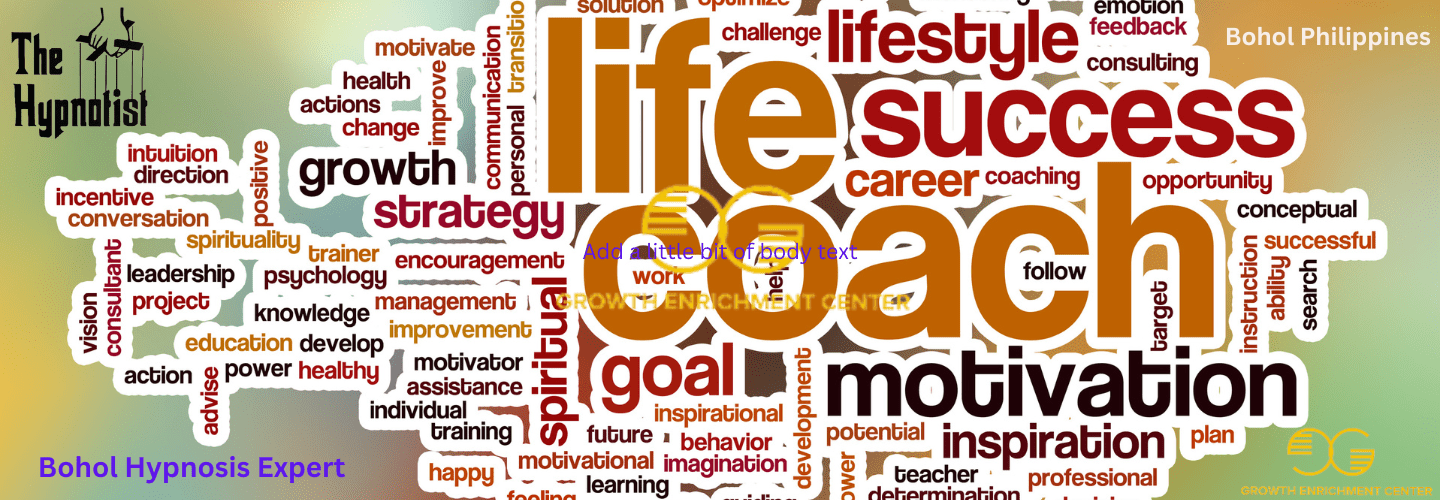
Hypnosis, EFT, and NLP offer effective tools to address the fear or phobia of holes. Through deep relaxation, tapping on meridian points, and reframing exercises, these techniques can recondition your mind to overcome intense discomfort and anxiety towards hole clusters. By integrating these holistic approaches, you can empower yourself to confront and heal from your phobia, creating new thinking patterns and emotional release. These transformative results can lead you towards newfound well-being and self-mastery, helping you regain control over your thoughts and emotions. Discover how these techniques can work for you and experience the empowering benefits they offer.
Understanding Trypophobia
What exactly is trypophobia and how does it manifest in individuals who experience it?
Trypophobia is a term used to describe the fear or aversion to clusters of small holes or bumps. This condition can be triggered by seeing patterns such as lotus seed pods, honeycombs, or even bubbles. People who experience trypophobia may feel intense discomfort, fear, disgust, or anxiety when exposed to these visuals. The triggers vary from person to person, but the pivotal element is the aversion to clustered holes.
Understanding triggers is vital in managing trypophobia. Identifying specific patterns or images that induce fear can help individuals avoid or cope with these triggers. The psychological impact of trypophobia can be significant, causing distress and anxiety in daily life. It can lead to avoidance behaviors, anxiety attacks, or even panic reactions in severe cases.
Power of Hypnosis

Exploring the transformative potential of hypnosis in addressing trypophobia and other phobias offers individuals a powerful tool for overcoming subconscious fears. Hypnosis taps into the power of the mind, enabling individuals to access deep relaxation and facilitate subconscious reprogramming. Through this process, individuals can confront their fears in a safe and controlled environment, allowing for profound mental reconditioning and fear elimination.
Here are three key ways in which hypnosis can help individuals overcome their phobias:
- Deep Relaxation: Hypnosis induces a state of deep relaxation, calming the mind and body, which can help individuals confront their fears without the overwhelming anxiety typically experienced.
- Subconscious Reprogramming: By accessing the subconscious mind, hypnosis enables individuals to reframe their thoughts and beliefs surrounding their phobia, leading to lasting changes in perception and behavior.
- Mental Reconditioning: Hypnosis aids in rewiring the brain's response to fear-inducing stimuli, allowing individuals to gradually eliminate their phobia's intensity and associated distress.
Benefits of EFT

Utilizing Emotional Freedom Techniques (EFT) can provide individuals with a practical and effective approach to address and alleviate phobias and fears. EFT works by tapping on specific meridian points on the body while focusing on the emotional intensity of the issue at hand. This process facilitates the release of trapped emotions, leading to emotional release and stress reduction.
One of the key benefits of EFT is its ability to target the root cause of phobias and fears, rather than just addressing the symptoms. By addressing the underlying emotional triggers, individuals can experience profound shifts in their emotional well-being. This approach not only helps in alleviating the immediate feelings of fear but also supports long-term emotional healing.
Moreover, EFT is a gentle and non-invasive technique that can be easily learned and practiced by individuals, empowering them to take control of their emotional health. The simplicity and effectiveness of EFT make it a valuable tool for managing various emotional challenges, including phobias and fears.
Techniques in NLP

An understanding of various techniques in Neuro-Linguistic Programming (NLP) can provide individuals with valuable tools to enhance communication, self-awareness, and personal growth. NLP offers a range of techniques that can be beneficial in overcoming fears and phobias, such as the fear of holes. Here are three key techniques in NLP that can assist individuals in addressing and resolving such fears:
- Anchoring Techniques: Anchoring in NLP involves associating a specific stimulus with a particular emotional state. By creating positive anchors linked to feelings of calmness or confidence, individuals can learn to access these resourceful states when faced with triggers that evoke fear or anxiety, helping them manage their responses effectively.
- Reframing Exercises: Reframing is a powerful NLP technique that involves looking at a situation from a different perspective. By reframing the way individuals perceive holes or the fear associated with them, they can change the meaning attached to these stimuli, leading to a shift in emotional responses and a reduction in fear levels.
- Pattern Interrupts: This technique involves disrupting negative thinking patterns associated with fears. By interrupting these thought processes through techniques like changing physical movements or focusing on different sensory experiences, individuals can break the cycle of fear and begin to retrain their minds to respond differently to hole-related triggers.
Overcoming Fear Through Hypnosis

If you're struggling with fear or phobia, hypnosis can provide a powerful tool for relief.
Hypnotherapy offers benefits such as accessing the subconscious mind to address underlying causes of fear and helping individuals reframe their thoughts and responses.
Through the use of hypnosis, individuals can work towards overcoming their fears and phobias in a safe and supportive environment.
Hypnosis for Phobia Relief
Addressing phobias through hypnosis offers a powerful and effective approach to overcoming deep-seated fears. Hypnosis sessions provide a safe space for individuals to explore the root causes of their phobias and reframe their perceptions.
Here are three key benefits of using hypnosis for phobia relief:
- Customized Approach: Hypnosis sessions can be tailored to suit the individual's specific phobia, ensuring a personalized and targeted treatment plan.
- Deep Relaxation: Through hypnosis, individuals can achieve a state of deep relaxation, which can help alleviate anxiety and fear associated with their phobia.
- Behavioral Modification: Hypnosis can aid in modifying behavioral responses to triggers, empowering individuals to face their fears with a greater sense of control and calmness.
Benefits of Hypnotherapy
Utilizing hypnotherapy as a tool for overcoming fear can offer individuals a transformative and empowering approach towards resolving deep-seated phobias. Through hypnosis, individuals can tap into the mind-body connection, enabling a healing process that addresses the root cause of their fears.
The subconscious transformation that occurs during hypnotherapy can lead to positive changes in thought patterns and behaviors, ultimately alleviating the grip of phobias. By delving into the subconscious mind under the guidance of a skilled hypnotherapist, individuals can reframe their perceptions and responses to the triggers of their fears.
This process not only helps in overcoming specific phobias but also paves the way for a more resilient and confident approach towards various challenges in life.
EFT for Trypophobia

Trypophobia, a specific fear characterized by an aversion to clusters of small holes or bumps, can be effectively addressed through the application of Emotional Freedom Techniques (EFT). EFT involves tapping on specific meridian points on the body while focusing on the emotional distress related to the fear of holes. Here are three ways EFT can help individuals dealing with trypophobia:
- Calming the Fear Response: EFT applications can help in reducing the intensity of the fear response triggered by hole clusters, allowing individuals to feel more at ease when encountering such stimuli.
- Addressing Underlying Emotions: By using EFT techniques, individuals can explore and process the underlying emotions or past experiences that may be contributing to their trypophobia, leading to a deeper understanding and resolution of the fear.
- Empowering Self-Management: EFT empowers individuals to take an active role in managing their trypophobia outside of therapy sessions, providing them with a practical tool to use whenever they encounter triggers.
NLP Strategies

Let's explore the world of NLP strategies and techniques as powerful tools to address and overcome the fear or phobia of holes.
By understanding NLP applications, individuals can learn to reframe their thoughts, emotions, and behaviors surrounding this specific phobia.
These strategies can provide practical ways to rewire the brain and create new patterns of thinking that lead to a sense of empowerment and control.
NLP Techniques
When employing NLP techniques for addressing fear or phobia of holes, individuals can gain profound insights into their subconscious thought patterns and reframe them effectively. NLP offers a range of strategies to help individuals overcome their fears, including:
- Effective Communication: NLP techniques focus on improving communication with oneself and others, enabling individuals to express their fears and concerns more clearly.
- Mindset Shift: By using NLP, individuals can shift their mindset from a place of fear to a place of empowerment and confidence when facing triggers related to holes.
- Pattern Interruption: NLP helps break the negative thought patterns associated with the fear of holes, allowing individuals to create new, positive associations with hole-related stimuli.
NLP Applications
Exploring various NLP applications can offer individuals effective strategies to reframe subconscious thought patterns and overcome fears or phobias related to holes. NLP integration techniques aim to identify and alter the underlying thought processes that contribute to these fears.
By utilizing NLP strategies, individuals can learn to communicate more effectively with their subconscious mind, creating new neural pathways that replace negative associations with holes. Essential communication within oneself is pivotal in this process, as it allows for the conscious and subconscious minds to work in harmony towards overcoming the fear.
NLP applications provide practical tools for individuals to break free from the grip of their phobias and lead a more fulfilling life free from the constraints imposed by irrational fears.
Case Studies

In examining case studies related to resolving fear or phobia of holes through hypnosis, EFT, and NLP, significant patterns and outcomes emerge that shed light on the effectiveness of these therapeutic approaches.
- Case studies: Several case studies have demonstrated the successful use of hypnosis, EFT, and NLP in helping individuals overcome their fear of holes. These studies provide valuable insights into the varied ways these techniques can be tailored to suit individual needs.
- Success stories: Through the analysis of success stories, it becomes evident that a combination of hypnosis, EFT, and NLP can lead to remarkable transformations in individuals who once struggled with a phobia of holes. These stories highlight the potential for long-lasting positive change.
- Treatment progress, client feedback: Tracking treatment progress and gathering client feedback are essential aspects of evaluating the effectiveness of these therapeutic methods. By documenting progress and listening to client feedback, practitioners can refine their approaches and enhance outcomes for individuals dealing with this specific fear or phobia.
Holistic Approach

A holistic approach integrates various therapeutic modalities to address the fear or phobia of holes thoroughly, aiming to provide individuals with a well-rounded and personalized treatment plan. Holistic healing recognizes that fear can manifest physically, mentally, and emotionally, requiring a all-encompassing approach that considers all aspects of an individual's well-being. By combining techniques such as hypnosis, EFT (Emotional Freedom Technique), and NLP (Neuro-Linguistic Programming), practitioners can tailor interventions to suit the specific needs of each person, fostering fear resolution from multiple angles.
Holistic healing approaches the fear or phobia of holes by not only addressing the symptoms but also delving into the root causes underlying the individual's distress. This method acknowledges that fears can be complex and deeply ingrained, often stemming from past experiences, traumas, or subconscious beliefs. By using a combination of therapeutic modalities, individuals can work through these issues in a supportive environment, promoting healing on a profound level. Through this integrative approach, individuals can experience transformative results that go beyond just alleviating the fear of holes, empowering them to lead more fulfilling and fearless lives.
Empowering Results

How can individuals benefit from the empowering results achieved through a holistic approach in addressing their fear or phobia of holes with hypnosis, EFT, and NLP? Engaging in this all-encompassing method can lead to profound self-discovery and emotional healing. Here are three key ways individuals can experience empowering results:
- Self-Discovery: Through the process of hypnosis, EFT, and NLP, individuals can explore deeply into their subconscious minds to uncover the root causes of their fear of holes. This journey of self-discovery can bring about a heightened awareness of one's thought patterns and behaviors, leading to a better understanding of oneself.
- Emotional Healing: By utilizing techniques like EFT, individuals can effectively release pent-up emotions and traumas associated with their fear of holes. This emotional healing process fosters a sense of relief, allowing individuals to let go of negative emotions and experience a newfound sense of emotional well-being.
- Personal Empowerment: As individuals work through their fear of holes with hypnosis, EFT, and NLP, they can regain a sense of control over their thoughts and emotions. This empowerment enables individuals to confront their fears head-on, leading to increased confidence and a greater sense of self-mastery.
Frequently Asked Questions
Can Hypnosis, Eft, and NLP Be Used to Treat Other Phobias or Anxieties Besides Trypophobia?
Anxiety disorders and phobia treatment encompass a wide range of fears and concerns beyond trypophobia. Hypnosis, EFT, and NLP techniques have shown promise in addressing various phobias and anxieties by targeting underlying triggers and promoting positive behavioral changes.
How Long Does It Typically Take to See Results When Using Hypnosis, Eft, and NLP to Treat Trypophobia?
Treatment duration for trypophobia using hypnosis, EFT, and NLP varies, typically showing results in several sessions. Success rates are high, often supported by patient testimonials and case studies. Individual progress may influence the timeframe for noticeable improvement.
Are There Any Potential Side Effects or Risks Associated With Using Hypnosis, Eft, or NLP for Treating Trypophobia?
Potential concerns may arise when using alternative therapies for trypophobia. Safety precautions include ensuring practitioner qualifications, discussing medical history, and understanding that individual responses may vary. It's essential to stay informed and consult professionals.
Can These Techniques Be Effective for Children or Adolescents With Trypophobia?
Child therapy can effectively address trypophobia in children and adolescents. Professional techniques like hypnosis, EFT, and NLP offer tailored approaches to help young individuals overcome their fear of holes, providing them with tools to manage anxiety.
Are There Any Specific Lifestyle Changes or Habits That Can Enhance the Effectiveness of Hypnosis, Eft, and NLP in Treating Trypophobia?
To enhance the effectiveness of treatments like hypnosis, EFT, and NLP for trypophobia, incorporating lifestyle changes such as stress management, regular exercise, healthy diet, adequate sleep, and mindfulness practices can provide a holistic approach towards overcoming phobias.
Conclusion
To sum up, the combination of hypnosis, EFT, and NLP offers a powerful solution to overcoming the fear or phobia of holes, known as trypophobia. Through these techniques, individuals can address the root cause of their fear and experience lasting results.
The holistic approach taken by these modalities can lead to empowering outcomes for those struggling with this phobia. By utilizing these methods, individuals can find relief and reclaim control over their lives.
Take the Next Step
Do not be afraid to reach out to me, Mark E Wilkins, to assist you in any issues you might have. Most Hypnotherapy sessions last 2 hours and EFT Sessions are usually handled with one session. Life Coaching is 45 minute session, once a week. Self-Hypnosis is taught in one session, and lasts a lifetime.
To make an appointment, first listen to the Pre-talk and fill out he Complementary Healthcare Provider Disclosure. The use the Contact Form to request an appointment with the Bohol Hypnosis Expert.
Self-help downloads are available. The self-hypnosis program to teach you how to self-hypnotize is here.





